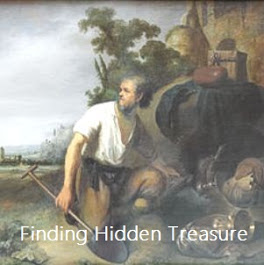Holiness - Week 9
Today was the ninth class on J.C. Ryle's book "Holiness." We reviewed Chapters 12 & 13 ("The Ruler of the Waves" ;"The Church Which Christ Builds")
I did a little historical explanation of what "novel reading" was considered to be back in Ryle's era. I used the works of Horatius Bonar and Robert Dabney (both 19th century theologians) as giving us a little background into what so considered to be so evil about "novel reading" at the time.
There were novels of the time which were simply immoral in their content. Yet, there were other factors such as the presentation of abberant behavior as acceptable or even heroic. There was also the sense that there was no real "re-creative" (as in, to be re created, and built back up spiritually and physically) purpose to these novels. They merely were written to evoke an emotional response to a completely fictional account while, in a sense, numbing the reader's emotions toward real-life situation. We made the point that the principles which went into the thinking of Ryle, Bonar and Dabney should be applied to the media of the 21st century which didn't even exist in the 19th century (i.e. movies, television, radio, recordings via wax cylinder and later vinyl, Compact Disks, mp3s, IPods, etc). We also pointed out that their reaction may have been, in retrospect, too broad and sweeping. Novelists such as George MacDonald would not have their wonderful works read under a very broad approach to novel reading.
There was a good bit of discussion about both chapters. I leave you with a quote from Ryle about seeing grace in fellow believers.
Above all, I want all Christians to understand what they must expect in other believers. You must not hastily conclude that a man has no grace merely because you see in him some corruption. There are spots on the face of the sun, and yet the sun shines brightly and enlightens the whole world. There is quartz and dross mixed up with many a lump of gold that comes from Australia, and yet who thinks the gold on that account worth nothing at all? There are flaws in some of the finest diamonds in the world, and yet they do not prevent their being rated at a priceless value. Away with this morbid squeamishness, which makes many ready to excommunicate a man if he only has a few faults! Let us be quick to see grace, and more slow to see imperfections! Let us know that, if we cannot allow there is grace where there is corruption, we shall find no grace in the world. We are yet in the body. The devil is not dead. We are not yet like the angels. Heaven has not yet begun. The leprosy is not out of the walls of the house, however much we may scrape them, and never will be until the house is taken down. Our bodies are indeed the temple of the Holy Spirit, but not a perfect temple, until they are raised or changed. Grace is indeed a treasure, but a treasure in earthen vessels. It is possible for a man to forsake all for Christ’s sake, and yet to be overtaken occasionally with doubts and fears.
I beseech every reader of this message to remember this. It is a lesson worth attention. The apostles believed in Christ, loved Christ and gave up all to follow Christ. And yet you see in this storm the apostles were afraid. Learn to be charitable in your judgment of them. Learn to be moderate in your expectations from your own heart. Contend to the death for the truth, that no man is a true Christian who is not converted and is not a holy man. But allow that a man may be converted, have a new heart and be a holy man, and yet be liable to infirmity, doubts and fears.
Links to articles on Novel Reading
Horatius Bonar - On Book Reading
Robert Dabney - On Dangerous Reading
Links to next Sunday's readings:
Sermon Audio
Start at 15:17 of Part 18; Finish at the very end of Part 19
The painting in the graphic is Christ In the Storm on the Sea of Galilee by Rembrandt



No comments:
Post a Comment